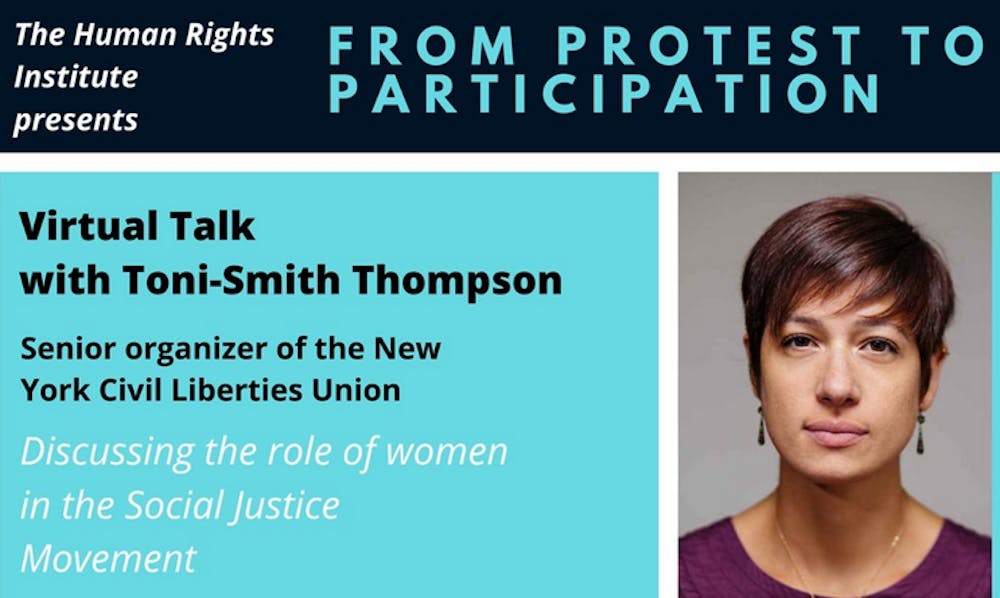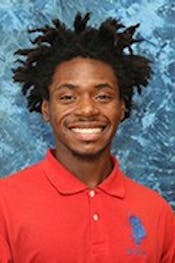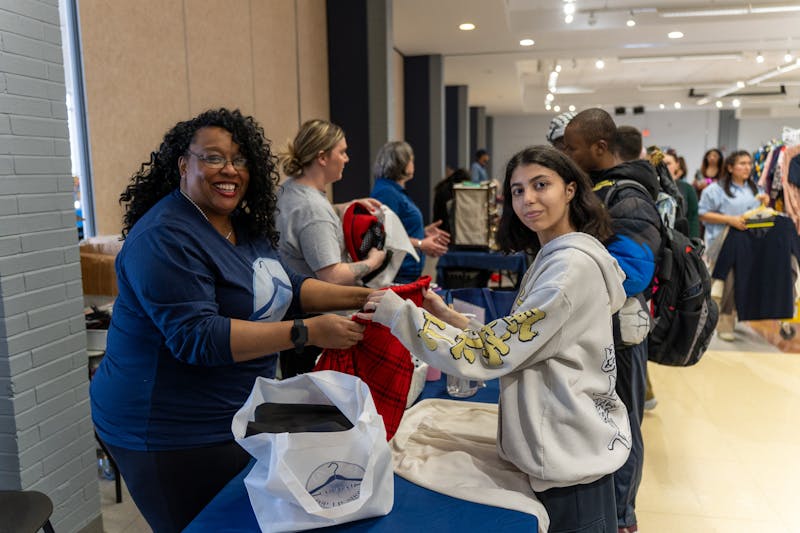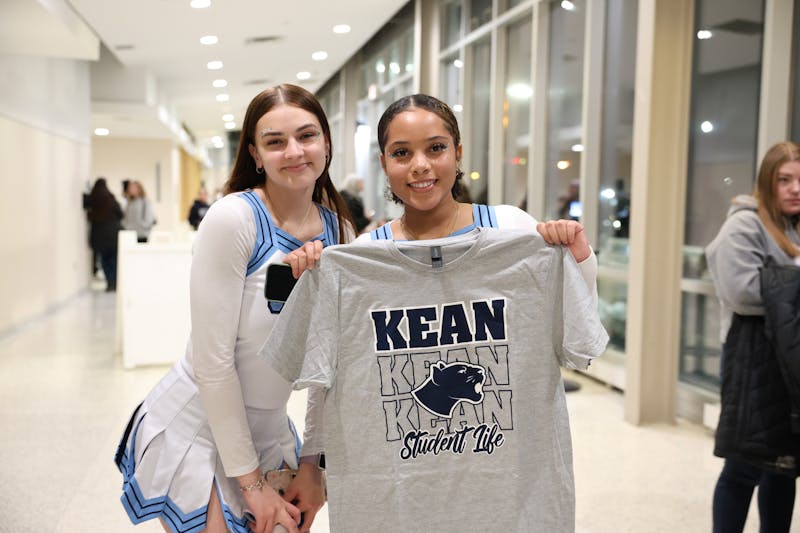On Thursday, March 18, the Human Rights Institute, Kean Athletics and the Women's and Gender Studies Program held From Protest to Participation: The Role of Women in the Social Justice Movement.
Guest speaker Toni Smith-Thompson, current senior organizer of the New York Civil Liberties Union, took part by sharing her story with attendees on protesting the national anthem.
Thompson joined the New York Civil Liberties Union in 2011. A lot of her work involves focusing on campaigns to eradicate racial injustices in education. In 2002 at just 21 years old, Thompson turned her back on the American flag during the national anthem at a Manhattanville basketball game, the college she would later graduate from with a sociology degree.
At the time, Thompson was a senior guard of the team. Her reasoning for the protest was due to America's involvement in the Iraq war.
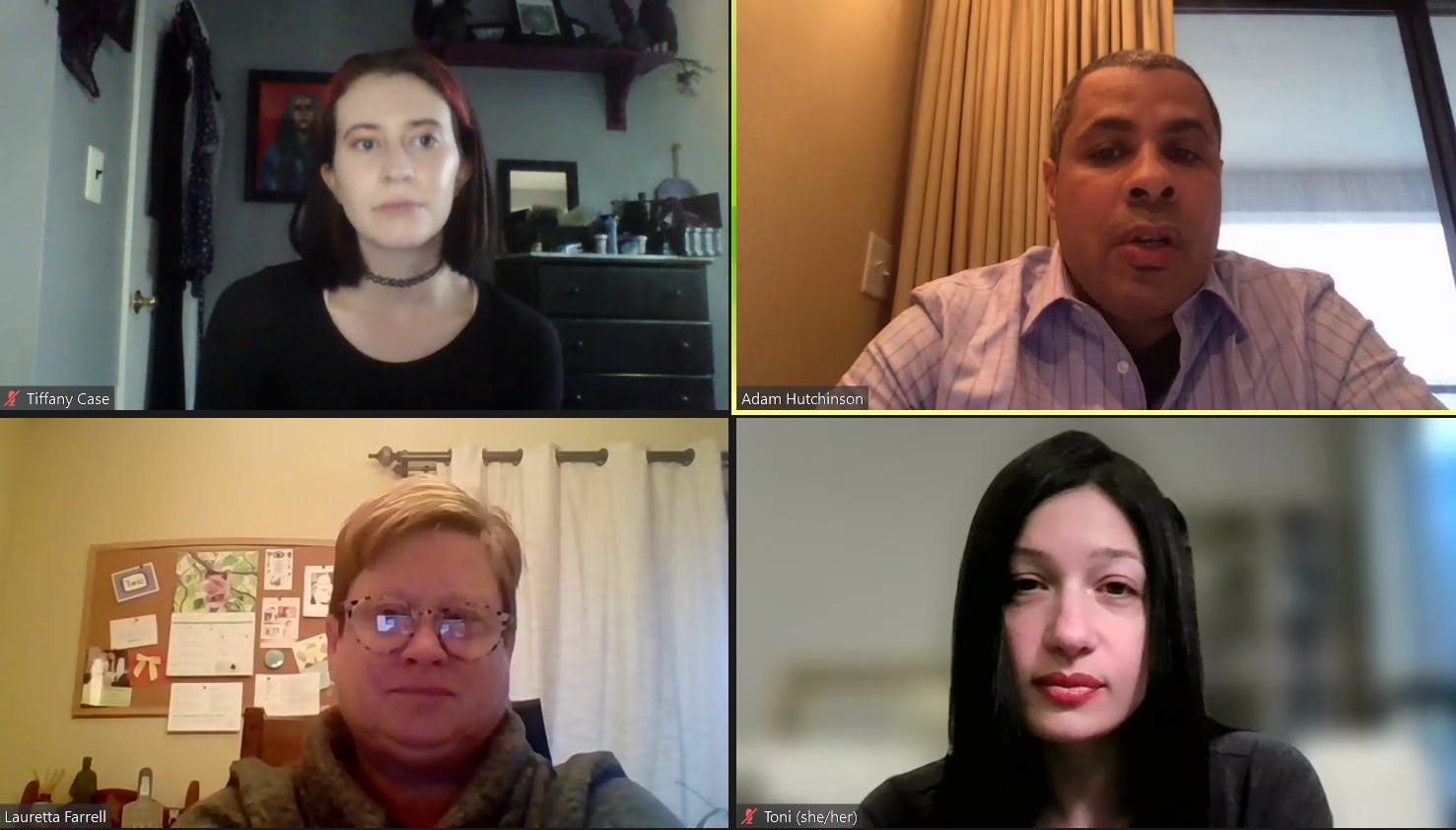
"The climate of the country in which my protest started was in the aftermath of the September 11, 2001 attacks. Immediately after that, there were signs that we were headed down a path to vengeance and retaliation," said Thompson when being asked about the timing of her protest.
Thompson elaborated on what simmered the feelings of payback.
"There was a big push to use sports as [a] way to bring people together and heal in that moment through displays of patriotism and incorporating new practices like emphasis on playing U.S. anthems," continued Thompson.
Her bold move to not partake in the national anthem brought on a lot of backlash at that time as many people felt Thompson was disrespecting the country's morals and values.
Many people in the Manhattanville community and beyond made petitions to get Thompson's scholarship revoked and expelled from the college.
However, Thompson's actions became widespread.
"What really had my story go from a school confined protest to a international story was when my team played a school whose assistant coach had been deployed overseas," she mentioned.
Continuing the story, she mentioned how the team had a strong response to her protest.
"I exchanged words where the other player exchanged words with me," Thompson continued. "That team called the next team we were scheduled to play to give them a heads-up about my protest and then the next team followed."
Thompson explained how her actions were debated on sports networks and shared a story of a friend that traveled abroad finding her story in the Italian newspaper.
Upon graduating from Manhattanville College, Thompson went on to build a career in the non-profit sector where she took it upon herself to shed light on social justice issues and promoting reformation.
In addition to Thompson's vulnerability, she took a series of questions from the audience in what appeared to be a smooth and enriching discussion about the freedom of speech.
"When I work with young people, the conversation I have with them is they may have the right to say what they want to say but to what end? What is the goal here? Their speech does have an impact," said Thompson.
Before the discussion concluded, Thompson explained the powers of what speech can do.
"Speech can be used to build, it can be used to harm," Thompson continued. "It can be used to form relationships. It can be used to dismantle relationships. It can be used to share power, it can be used to hoard power. While we debate what can be legally said or not under the First Amendment, those who are committed to a just future must have to make a different choice."


